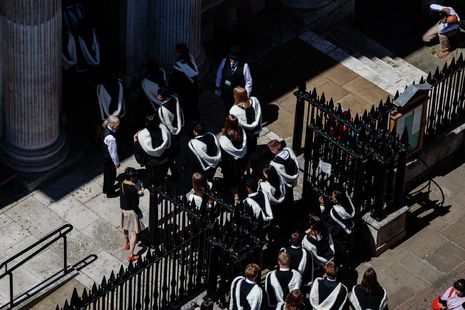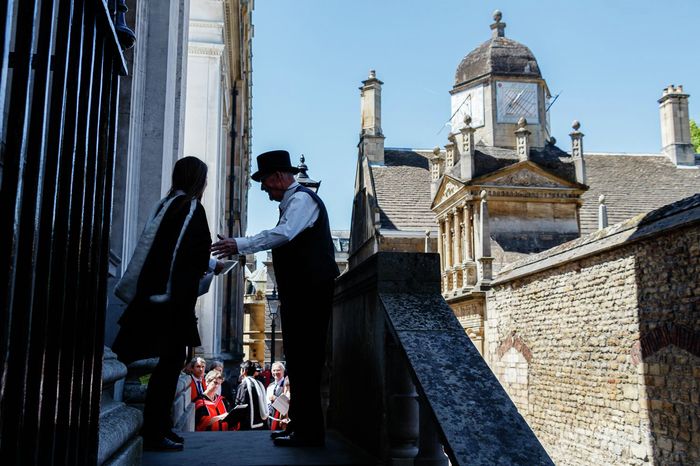Academics pressure Cambridge to name secret donors
A new open letter calls for top universities to improve transparency around funding, following an investigation earlier this year

Academics have signed an open letter calling for Cambridge University, among other top UK institutions, to name its donors following concerns over transparency.
A group consisting of more than 120 influential academics, campaigners, and politicians has said that universities must be forced to divulge the sources of millions in undisclosed funding.
The Cambridge signatories include Professor Jason Scott-Warren, an English academic at Gonville & Caius and a prominent climate campaigner.
The letter comes as political parties face pressure to take action after an investigation by OpenDemocracy found that more than £281 million of anonymous donations have been made to Russell Group universities since 2017.
The report claimed that Cambridge, among other prestigious universities, is “fighting to keep a list of its recent donors secret,” which allegedly includes fossil fuel, tobacco, and arms companies.
University of Cambridge officials also held private meetings with Government advisers to urge them to “keep their funding secret,” according to last year’s report.
This has led professors from reputable universities including Cambridge, Oxford LSE, Exeter, Bristol, UCL and Manchester to express their concern that donations could be used for “reputation laundering”.
In an open letter to Gillian Keegan, the education secretary, and Bridget Phillipson, the shadow education secretary, the academics said: “Due to the difficult financial climate, universities have increasingly found it necessary to seek large amounts of money from private donors. These include wealthy individuals and big businesses, including many from overseas. But this is often shrouded in secrecy."
“Anonymous donations have often come from authoritarian countries where academic freedom is under threat. Yet there is currently no requirement for universities to be transparent — creating a real risk of money laundering and reputation laundering,” the authors added.
The letter also expresses concerns about the significant threat to universities’ integrity if transparency isn’t improved, given the “potential influence” donors may have over university courses.
The academics are now urging both the Conservatives and Labour to make manifesto commitments for “urgent action,” including legislation which would mandate universities to publish significant donations and research funding.
This data would usually only be available via lengthy and nuanced Freedom of Information requests.
Jesse Norman, the Conservative MP, spearheaded a campaign for similar initiatives in 2022, but the proposals were “massively watered down” by the government, according to OpenDemocracy, with Norman describing it as a “missed opportunity”.
In December last year, Stephen Toope, a former Vice-Chancellor of the University of Cambridge, said that this proposed bill would “have a hugely damaging impact on our philanthropy,” in a letter to a government adviser.
Toope expressed concerns that the university’s capacity for fundraising could be “severely impacted” unless the identities of foreign benefactors were kept confidential.
The University has received between £25 million and £49.9 million in anonymous donations, but refused to provide openDemocracy with the exact amount. These donations went towards laboratories and a business school, the University of Cambridge confirmed.
Ukrainian oligarch Dmitry Firtash has been a prominent donor, funding scholarships at Cambridge University. His arrest in 2015 on corruption charges prompted the University to confirm that they have accepted no funding from the family since 2013.
Cambridge has also rejected openDemocracy’s allegations, suggesting they “create a misleading picture about donations to Cambridge”.
A University spokesperson told Varsity last year that Cambridge does not “accept completely anonymous donations,” respecting the right of people who “wish their donations to be private,” but maintain they carry out “robust and diligent checks on overseas contributions”.
The Department for Education told The Times: “While universities are autonomous, they should consider the ethical implications of any donations they are offered including on their duties regarding free speech and academic freedom."
“The Higher Education (Freedom of Speech) Act gives the Office for Students powers to monitor overseas funding and require universities to provide details of gifts, donations, research grants and other income from overseas which is over a set threshold,” they said.
 News / Judge Business School advisor resigns over Epstein and Andrew links18 February 2026
News / Judge Business School advisor resigns over Epstein and Andrew links18 February 2026 News / Gov grants £36m to Cambridge supercomputer17 February 2026
News / Gov grants £36m to Cambridge supercomputer17 February 2026 News / Hundreds of Cambridge academics demand vote on fate of vet course20 February 2026
News / Hundreds of Cambridge academics demand vote on fate of vet course20 February 2026 News / CUCA members attend Reform rally in London20 February 2026
News / CUCA members attend Reform rally in London20 February 2026 News / Union speakers condemn ‘hateful’ Katie Hopkins speech14 February 2026
News / Union speakers condemn ‘hateful’ Katie Hopkins speech14 February 2026










